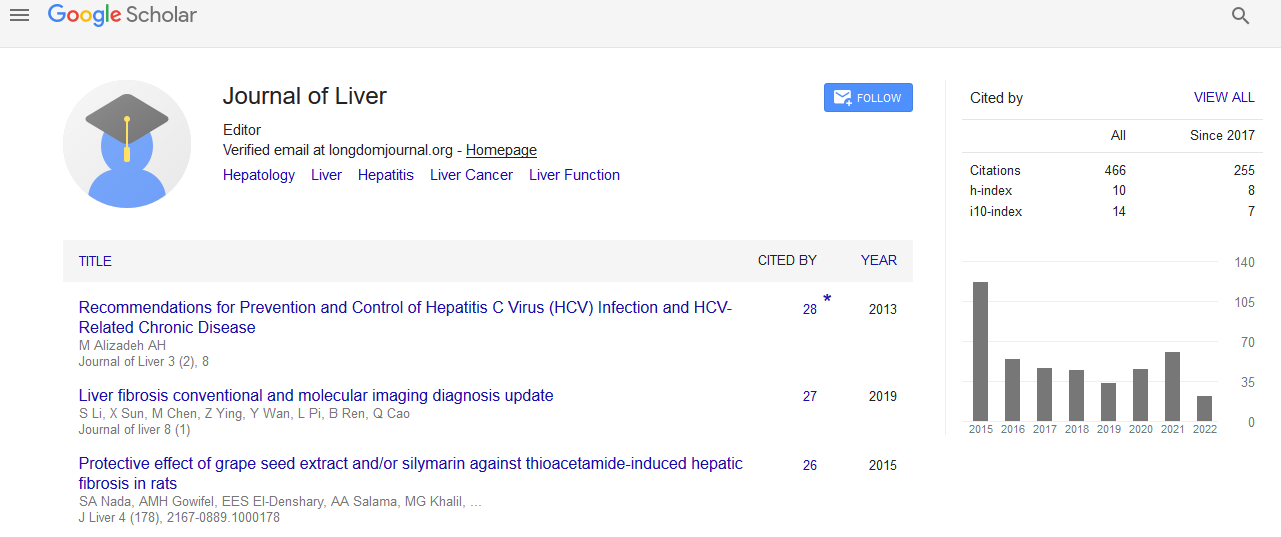PMC/PubMed Indexed Articles
Indexed In
- Open J Gate
- Genamics JournalSeek
- Academic Keys
- RefSeek
- Hamdard University
- EBSCO A-Z
- OCLC- WorldCat
- Publons
- Geneva Foundation for Medical Education and Research
- Google Scholar
Useful Links
Share This Page
Journal Flyer

Open Access Journals
- Agri and Aquaculture
- Biochemistry
- Bioinformatics & Systems Biology
- Business & Management
- Chemistry
- Clinical Sciences
- Engineering
- Food & Nutrition
- General Science
- Genetics & Molecular Biology
- Immunology & Microbiology
- Medical Sciences
- Neuroscience & Psychology
- Nursing & Health Care
- Pharmaceutical Sciences
Abstract
Pharmacotherapy for Hepatic encephalopathy: view of Evidence-Based Medicine
Ming-Hua Zheng, Dan-Qin Sun, Qian Jiang, Ke-Qing Shi, Ai-Min Wu and Yong-Ping Chen
Hepatic encephalopathy (HE) refers to a complex and reversible neuro-psychiatric syndrome that results from complications of acute or chronic hepatic failure, particularly alcoholic cirrhosis. It will lead to frequent life disruptions, poor quality of life and extensive use of health care resources. We conducted the review of several agents based on randomized controlled trials (RCTs) of high-quality Jadad scores (≥3) to provide effective information for clinical practice. Rifaximin appears at least to be as effective as conventional treatments, but not superior to them. L-Ornithine-L-aspartate appears to be a safe and effective treatment of chronic HE when compared with a placebo regime. Other treatments include non-absorbable disaccharides (NAD) and benzodiazepine receptor antagonists. In spite of the variability in the improvement of HE, NAD and non-absorbed antibiotics such as rifaximin offer a favorable benefit–risk ratio in the improvement of HE. Further RCTs with power calculation and a multi-centre approach with adequate population number are needed to resolve the heterogeneous results

